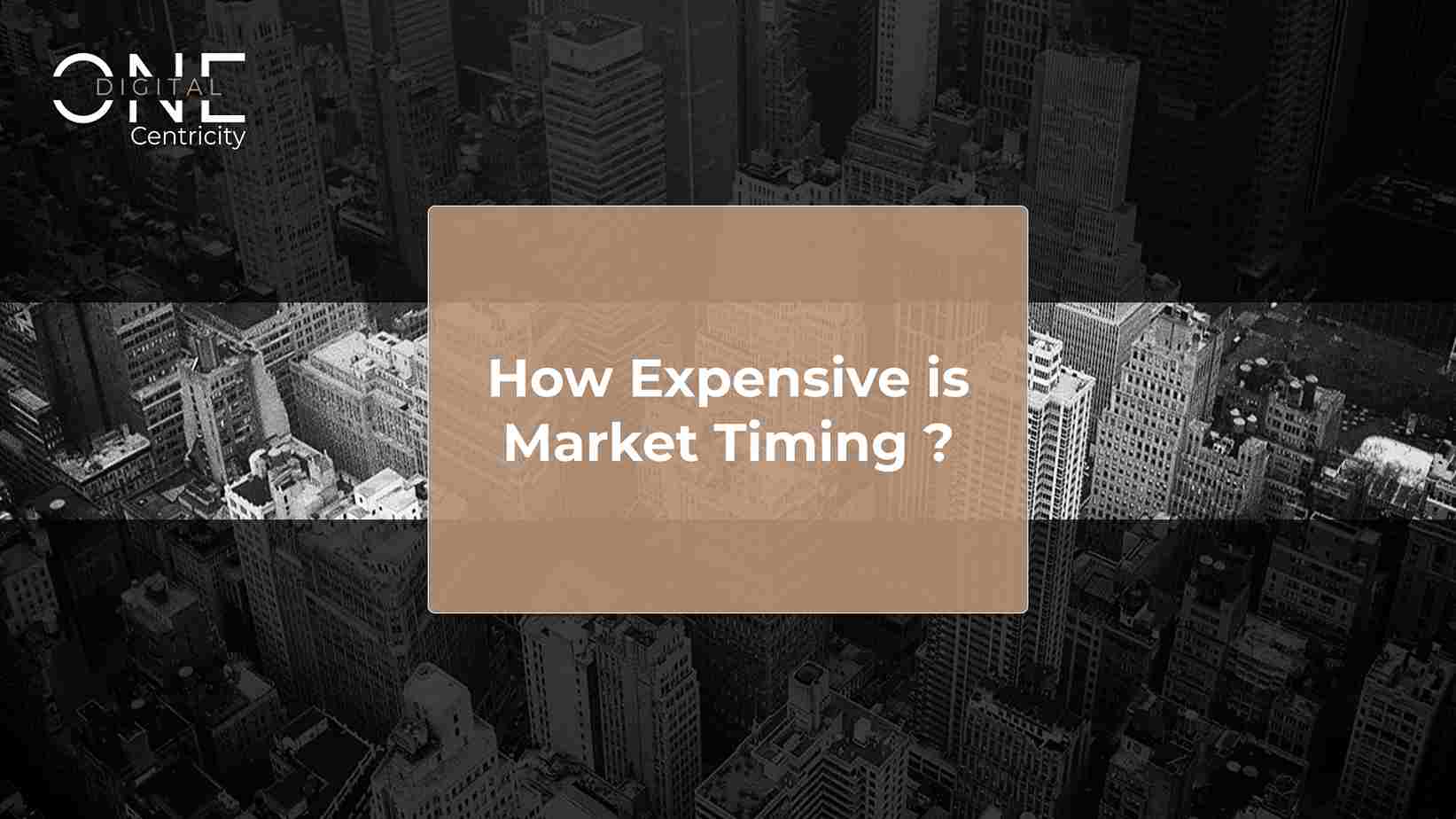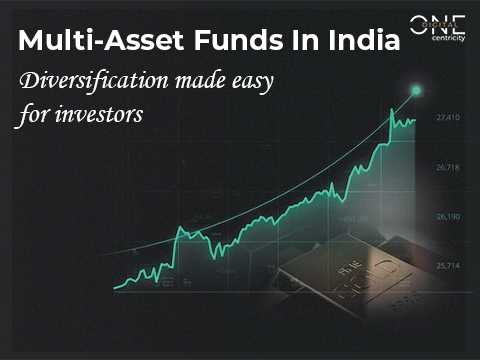How Expensive is Market Timing?
27th September 2023 | Author : Centricity

In the world of investing, the allure of timing the market is strong. The idea of buying low and selling high, while seemingly straightforward, has captivated investors for generations. Yet, beneath the surface of this alluring strategy lies a complex web of risks and hidden costs that can significantly impact an investor's financial well-being.
The Illusion of Predictability
At the heart of market timing is the belief that one can predict the future movements of financial markets. Investors may follow news and economic indicators or even employ technical analysis to make their predictions. However, history has shown that even the most seasoned experts often fail to consistently make accurate forecasts.
The reality is that financial markets are influenced by a multitude of variables, many of which are impossible to predict with certainty. Economic events, geopolitical developments, and unexpected corporate news can swiftly change market dynamics. Attempting to time the market is essentially a gamble on the ability to foresee these events accurately.
The Cost of Missed Opportunities
One of the most significant costs associated with market timing is the missed opportunities. Investors who try to time the market often find themselves waiting on the sidelines, hoping for the "perfect" moment to invest. This hesitation can lead to substantial missed gains during periods of market growth.
For instance, consider the case of an investor who remains out of the market during a prolonged bull run, waiting for a downturn that may or may not occur. While they wait, they miss out on the compounding growth potential that can be realized by staying invested over the long term.

Emotional Toll
Market timing can take an emotional toll on investors. Constantly monitoring markets, making rapid decisions based on predictions, and dealing with the anxiety of being wrong can be emotionally draining. The fear of missing out (FOMO) during rising markets and the fear of loss during downturns can lead to impulsive actions that harm long-term financial goals.
Hidden Costs: Transaction Fees and Taxes
Frequent buying and selling of assets, a common characteristic of market timing, that can lead to substantial transaction costs. These costs include brokerage fees, bid-ask spreads, and taxes. Short-term capital gains tax rates are typically higher than long-term rates, and frequent trading can result in increased tax liabilities, eating into overall returns.
Not only this, market timers often concentrate their investments on a single asset or asset class they believe will perform well in the short term. This lack of diversification exposes them to higher levels of risk. If the chosen asset or asset class underperforms or experiences a downturn, significant losses can ensue.
Mention below are some of the costs/fees that are charged!
Transaction Fees:
- Brokerage Commissions: Brokerage commissions in India can vary depending on the broker and the type of account you have. They can be based on a percentage of the trade value or a fixed fee per trade. As of 2021, brokerage fees typically ranged from 0.01% to 0.5% of the transaction value.
- Securities Transaction Tax (STT): STT is a tax levied on the purchase and sale of securities in India. It's applicable to both equity delivery trades and options and futures transactions. STT rates can vary but are typically low. For example, as of 2021, the STT rate for equity delivery trades was 0.1% on the sell side, while the rate for options and futures was 0.05% on the sell side.
- Stamp Duty: Stamp duty is levied by state governments in India on the transfer of securities. The rates can vary from state to state and depend on the type of security. Stamp duty is typically a small percentage of the transaction value.
Taxes:
- Capital Gains Tax: In India, capital gains tax is applicable when you sell an asset such as stocks, real estate, or mutual fund units for a profit. The tax rate depends on whether the gain is short-term or long-term.
- Short-Term Capital Gains (STCG): The short-term capital gains on stocks were taxed at your applicable income tax slab rate. This means it could be as high as 30% or more for individuals in higher tax brackets.
Long-Term Capital Gains (LTCG): LTCG on stocks exceeding Rs. 1 lakh were subject to a 10% tax without indexation benefits. However, gains up to Rs. 1 lakh were exempted from tax.
- Dividend Distribution Tax (DDT): Historically, Indian companies paid DDT on the dividends they distributed, resulting in tax-free dividends for shareholders. However, in the Union Budget 2020, DDT was abolished, and dividends became taxable in the hands of the recipients at their applicable income tax rates.
- Goods and Services Tax (GST): GST may apply to certain financial services and products, including trading services provided by brokers. The rate can vary based on the type of service and the GST rate in your state.
Note: Additionally the brokerage commissions and fees may vary among different brokers and trading platforms, so it's advisable to compare the costs associated with different service providers to make informed decisions when timing the market
Conclusion
The cost of timing the market extends beyond mere monetary losses. Emotional stress, missed opportunities, hidden transaction costs, lack of diversification, and the overconfidence trap are all potential pitfalls associated with this strategy. While some may claim success with market timing in the short term, it is widely regarded as a risky and unreliable approach to investing.
For most investors, a prudent strategy involves a long-term, diversified approach that aligns with their financial goals and risk tolerance. Rather than attempting to predict market movements, investors are better served by focusing on sound fundamentals, patience, and discipline!
Disclaimer: The above information should not be relied upon for personal or financial decisions, and you should consult an appropriate financial professional for specific advice. The information presented under our newsletter and blogs is solely for informational purpose

Thematic Funds in India: A Growing Trend in Investment!
30th January 2025

Are you investing in SIPs smartly ?
21st January 2025

Multi-Asset Funds in India: Diversification Made Easy for Investors
16th December 2024

Multi-Cap vs Flexi-Cap Mutual Funds: Where to Invest in 2024?
26th September 2024


